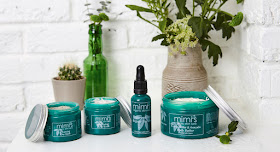Many people are beginning to switch to organic food. Not only food, organic word is also found in skin care. It's not hard anymore to look for organic skin care today, you can find it directly or through online shopping. However, is it true that natural or organic materials are much better than other products?
Before you choose a product that suits you, check out the following facts about organic skin care:
1. Organic skin care is believed to be better for the skin
Nonorganic skincare products can expose your skin from a number of endocrine disorders due to heavy metals that enter your body, such as mercury, emulsifiers, parabens, and propylene glycols. These ingredients can be easily absorbed by your body and spread throughout the body. The impact will cause accumulation on the body and damage that is not visible. In contrast to organic products that not only kill toxins, but offer various benefits of skin needs, such as antioxidant content that can provide antiaging effects. You can also overcome hyperpigmentation and inflammation problems.
2. The materials used must be eligible for organic certification.
Natural ingredients used for organic skin care are usually ingredients such as aloe vera, apple, honey and others. In America itself, to be certified USDA, the materials used must be free of synthetic pesticides, fertilizers, and other non-organic substances.
3. Differences organic and vegan skin care.
Products that have natural and vegan claims do not contain ingredients derived from animal. Good vegan products do not contain beeswax or carmine; that comes from bees. The word vegan itself also refers to its environmentally friendly production process. The material is not tested on animals. However, not all vegan products are organic. Some of them even have not claimed cruelty-free.
4. Organic matter still requires evidence of its effectiveness.
Many products claim to be organic just to increase sales alone, without providing better benefits. Doris Day, MD, an assistant professor of clinical dermatology at New York University Medical Center, cited Everyday Health as saying that she is not sure why people think that natural ingredients are much better. What he was looking for was medical evidence. Clinical data is still needed to determine the safety and effectiveness of organic skin care.
